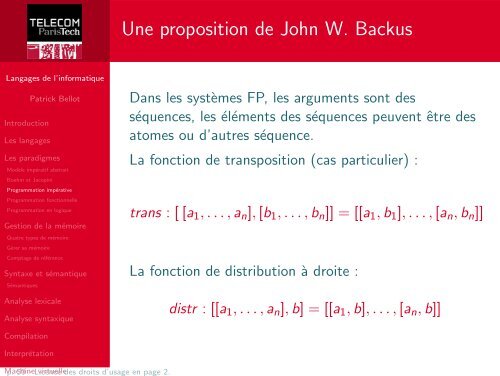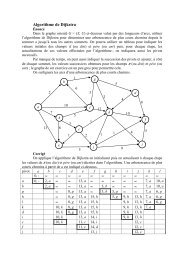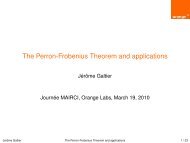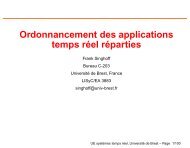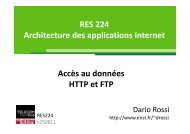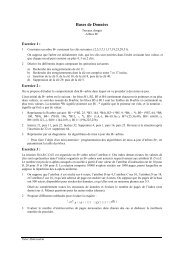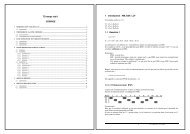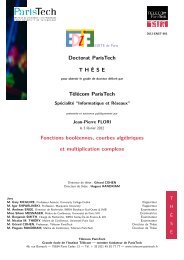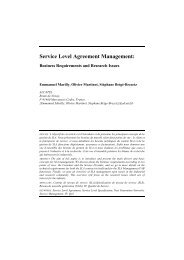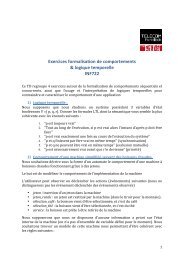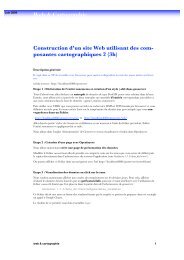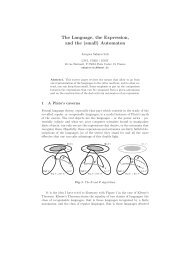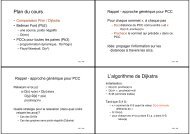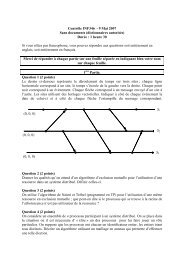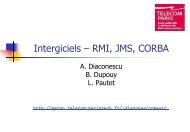Langages de l'informatique
Langages de l'informatique
Langages de l'informatique
Create successful ePaper yourself
Turn your PDF publications into a flip-book with our unique Google optimized e-Paper software.
Machine p. 50 - Licence virtuelle<strong>de</strong>s droits d’usage en page 2.<br />
Une proposition <strong>de</strong> John W. Backus<br />
<strong>Langages</strong> <strong>de</strong> l’informatique<br />
Patrick Bellot<br />
Introduction<br />
Les langages<br />
Les paradigmes<br />
Modèle impératif abstrait<br />
Boehm et Jacopini<br />
Programmation impérative<br />
Programmation fonctionnelle<br />
Programmation en logique<br />
Gestion <strong>de</strong> la mémoire<br />
Quatre types <strong>de</strong> mémoire<br />
Gérer sa mémoire<br />
Comptage <strong>de</strong> référence<br />
Syntaxe et sémantique<br />
Sémantiques<br />
Analyse lexicale<br />
Analyse syntaxique<br />
Dans les systèmes FP, les arguments sont <strong>de</strong>s<br />
séquences, les éléments <strong>de</strong>s séquences peuvent être <strong>de</strong>s<br />
atomes ou d’autres séquence.<br />
La fonction <strong>de</strong> transposition (cas particulier) :<br />
trans : [[a 1 ,...,a n ],[b 1 ,...,b n ]] = [[a 1 ,b 1 ],...,[a n ,b n ]]<br />
La fonction <strong>de</strong> distribution à droite :<br />
distr : [[a 1 ,...,a n ],b] = [[a 1 ,b],...,[a n ,b]]<br />
Compilation<br />
Interprétation


